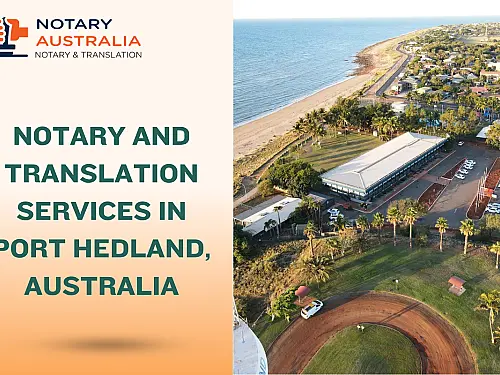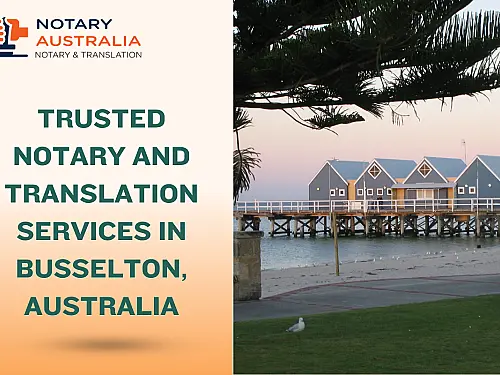



How to Notarise Legal Documents in Australia: A Complete Guide
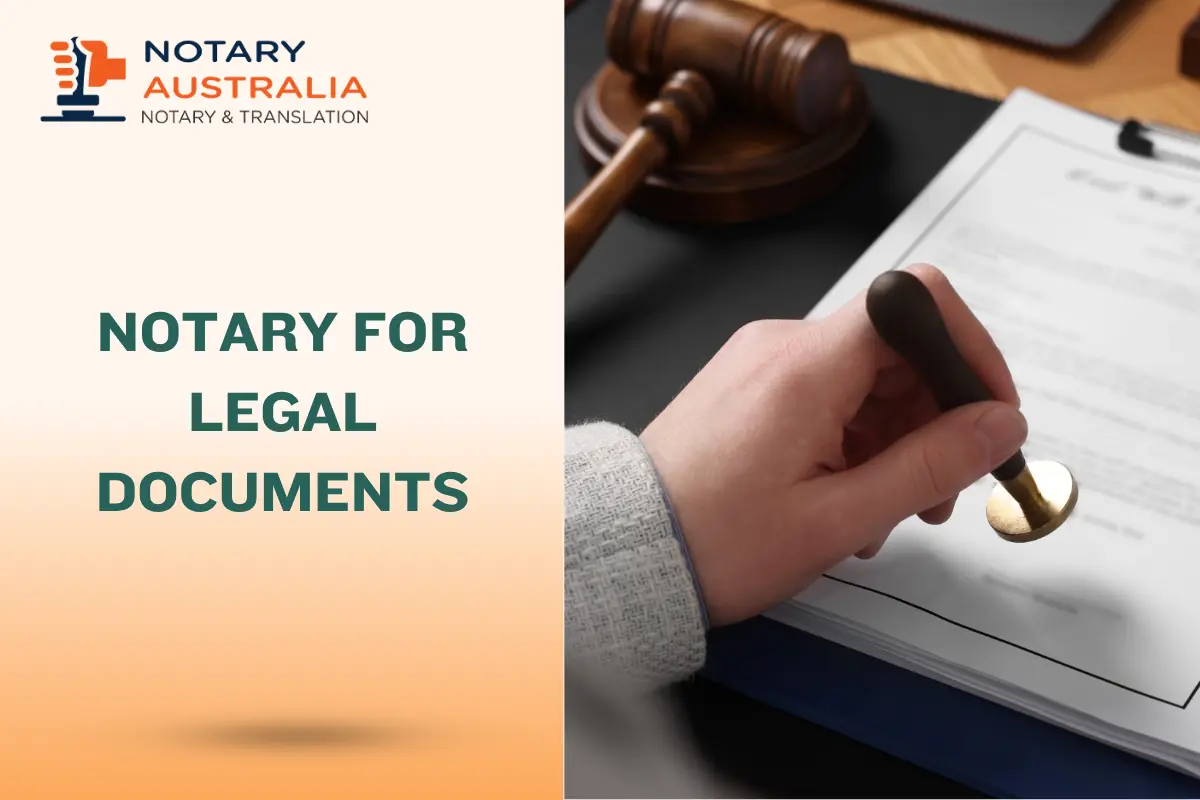
Table of Contents
When dealing with legal documents—whether for court, contracts, overseas matters, or official declarations—having them notarised is often more than just recommended. It's essential. A notary public gives your documents legal credibility, global recognition, and peace of mind.
This guide breaks down everything you need to know about using a notary for legal documents in Australia, including when and why notarisation is required, how to book a notary, online and mobile options, cost expectations, and much more.
What Legal Documents Need Notarisation?
Not all legal documents require a notary, but many benefit from or demand it—especially for international use or official government procedures. Here's a list of common legal papers that typically need notarisation:
Common Legal Documents Requiring a Notary
- Power of attorney (POA)
- Affidavits
- Statutory declarations
- Contracts and agreements
- Court-related documents
- Financial authorisations
- Medical directives
- Real estate documents
- Consent letters (e.g., child travel)
- Immigration and visa forms
Tip: Notarisation ensures your document will be legally accepted both in Australia and internationally.
When and Why You Need a Notary Public
What Does a Notary Public Do?
A notary public verifies your identity, witnesses your signature, and certifies the authenticity of a document. The notary's stamp or seal acts as legal proof that:
- The document is genuine
- You willingly signed it
- It hasn’t been tampered with
- It can be legally recognised abroad
Only notaries—not regular solicitors—can offer documents that are accepted overseas or by foreign embassies.
Do I Always Need a Notary?
You need a notary when:
- A document is being used internationally
- A government or court specifically requests notarisation
- You're sending documents to a foreign embassy
- You want added legal strength and credibility
How to Get Your Legal Documents Notarised
Step-by-Step Process
- Prepare Your Documents
- Ensure they're accurate and unsigned.
- Choose Your Notary Type
- In-person, mobile, or online.
- Book an Appointment
- Call, email, or use an online booking system.
- Attend with Valid ID
- Bring your passport, driver’s licence, or government-issued ID.
- Sign in Front of the Notary
- Do not sign beforehand.
- Receive Certification
- The notary applies a stamp, seal, and signature.
- Optional: Apostille or Embassy Legalisation
- For overseas use, you may need further steps via DFAT.
Online and Mobile Notary Options
Online Notary Services
Many notaries now offer video-based notarisation, which is legally recognised for most Australian and overseas uses.
Ideal for:
- Remote clients
- International document processing
- Urgent legal submissions
Search for:
- online notary for legal documents
- video notary Australia
- notarise documents online
Mobile Notary Services
Need the notary to come to you?
Mobile notaries are perfect for:
- Aged care centres
- Hospitals
- Busy professionals
- After-hours or weekend appointments
Search for:
- mobile notary legal documents
- same day notary legal papers
- notary at home or workplace
Cost of Notarising Legal Documents in Australia
| Service Type | Average Cost (AUD) |
|---|---|
| In-office notarisation | $80 – $150 per document |
| Mobile notary visit | $150 – $300 |
| Online notarisation (video call) | $90 – $180 |
| Apostille from DFAT (optional) | $92 (plus courier fees) |
Always confirm pricing and services in advance—some notaries offer discounts for bulk documents.
Notary vs Solicitor: What's the Difference?
| Criteria | Notary Public | Solicitor |
|---|---|---|
| Legal for International Use | Yes | No |
| Certifies Identity & Document | Yes | No |
| Applies Official Seal | Yes | No |
| Required for Apostille Process | Yes | No |
Use a solicitor for legal advice, but a notary when your document needs to be recognised by courts, embassies, or overseas institutions.
Legal Compliance and International Use
Do You Need an Apostille or Embassy Legalisation?
If your notarised document is going to a country part of the Hague Apostille Convention, it must be apostilled by the Department of Foreign Affairs and Trade (DFAT).
If it’s going to a non-member country, it must be legalised by the respective embassy or consulate.
Notaries often assist with apostille applications and embassy processes.
FAQs About Notarising Legal Documents
Can I get a document notarised the same day?
Yes. Many notaries offer same-day or emergency services, especially online and mobile notaries.
Can I use a solicitor instead of a notary?
Only if the document stays within Australia. For international or government-related use, a notary is required.
Can I notarise scanned documents?
Some notaries accept electronic documents via secure digital platforms, especially for e-notarisation.
Can I pre-sign my document?
No. You must sign in the notary’s presence.
Final Thoughts
Getting your legal documents notarised in Australia is a simple yet critical process that ensures legal standing—especially for international, immigration, financial, or court-related matters. Whether you need a notary for a power of attorney, affidavit, contract, or statutory declaration, options like mobile, online, and after-hours notaries make it easier than ever.

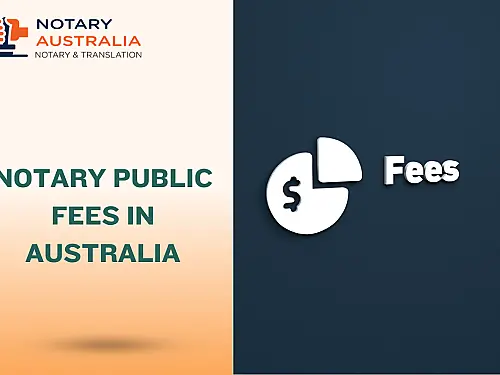

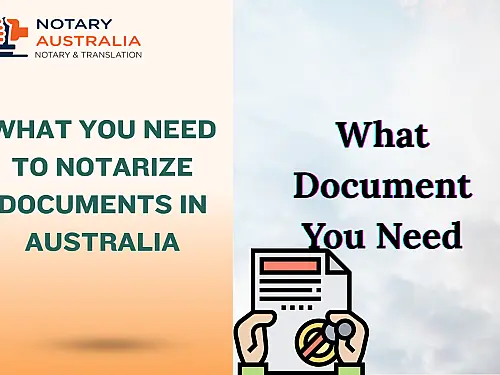
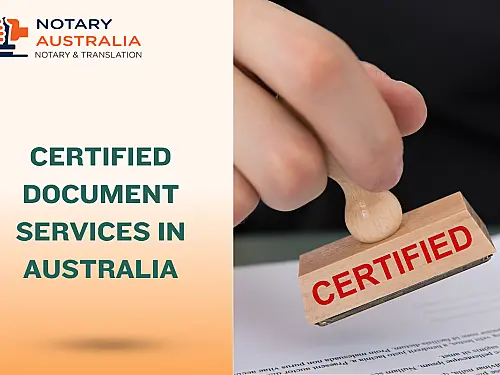
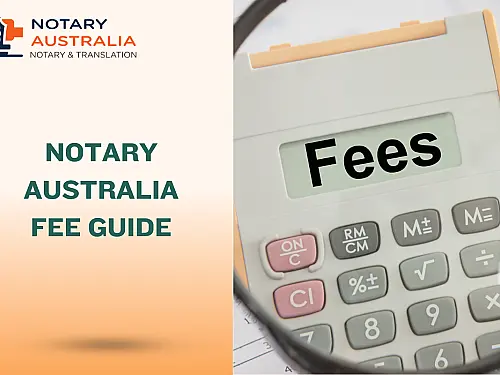
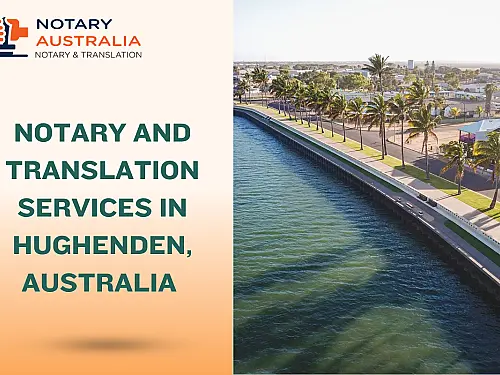
-thumb.webp)

